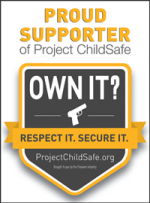Gun control advocates are devising new measures that could decrease the likelihood of mass shootings and other firearm-related casualties, and appeal to a broad-enough slice of the political spectrum for new laws to pass. Gun violence restraining orders (GVROs) are one such promising avenue that could save lives, according to an article published this week in the journal Behavioral Sciences and the Law.Two of the researchers in the study referenced above also trotted out similar proposals at a University of Virginia Consortium for Risk-Based Firearm Policy in 2013. California has already passed such a law. The idea is, since banning semi-automatic firearms and criminalizing private sales will likely be difficult to achieve in all but a handful of states, targeting people who are thought to have mental health issues will certainly be something we can all agree needs to be done. The problem is, laws like this have few due process protections.
GVROs permit family members and intimate partners to petition a court to deny the possession or purchase of a firearm by an individual exhibiting dangerous or violent behavior. Currently, gun ownership restrictions generally apply to two groups, the mentally ill and criminals. This sort of prohibition must be triggered by an extreme event, such as an involuntary psychiatric commitment or a violent crime. Before such an event, “family members, intimate partners, or others often observe a pattern of dangerous behavior,” note the researchers from the Johns Hopkins Bloomberg School of Public Health and the University of California, Davis. These warning signs are better predictors of violence than mental illness diagnoses.
For instance, last summer, Robert B. Young, a private psychiatrist in Pittsford, NY, and a Distinguished Fellow of the American Psychiatric Association wrote the following at GunMag.com:
These issues raise serious concerns:With laws like this, the devil is always in the details. Dr. Young notes that people with mental illnesses are no more likely to commit violence than the general population and are far more likely to become victims. He continues that the best intervention is good treatment. But, intervention or treatment for the mentally ill isn't the goal of the gun ban lobby, it's finding ways to keep people from owning firearms.
- What standards of evidence justify a seizure? Commitment for psychiatric treatment doesn’t necessarily imply danger with a firearm, let alone for 5 years. Most of those patients readily recover and many never again require that level of intervention. In domestic conflicts, there are sometimes false or exaggerated allegations. Convictions (not just charges) for violent misdemeanors may merit prohibition of gun possession for some time, but 10 years without recourse is longer than necessary or fair in many circumstances.
- What sort of evidence is required to reverse the seizure? There’s no way to guarantee that someone will behave safely. It’s not possible even for psychiatrists to predict the likelihood of violent behavior beyond a day or two.
- How does the initial seizure of property incorporate any due process, particularly since this contravenes a federal constitutional right? Yet emergencies do happen, and deaths might be prevented if weapons could be confiscated in time and with good judgment.
- Police officers deserve great respect but there are always a few who abuse their powers. How can this be safeguarded?
- What is reasonable about not permitting the subject to contest these decisions for a year or more?








No comments:
Post a Comment